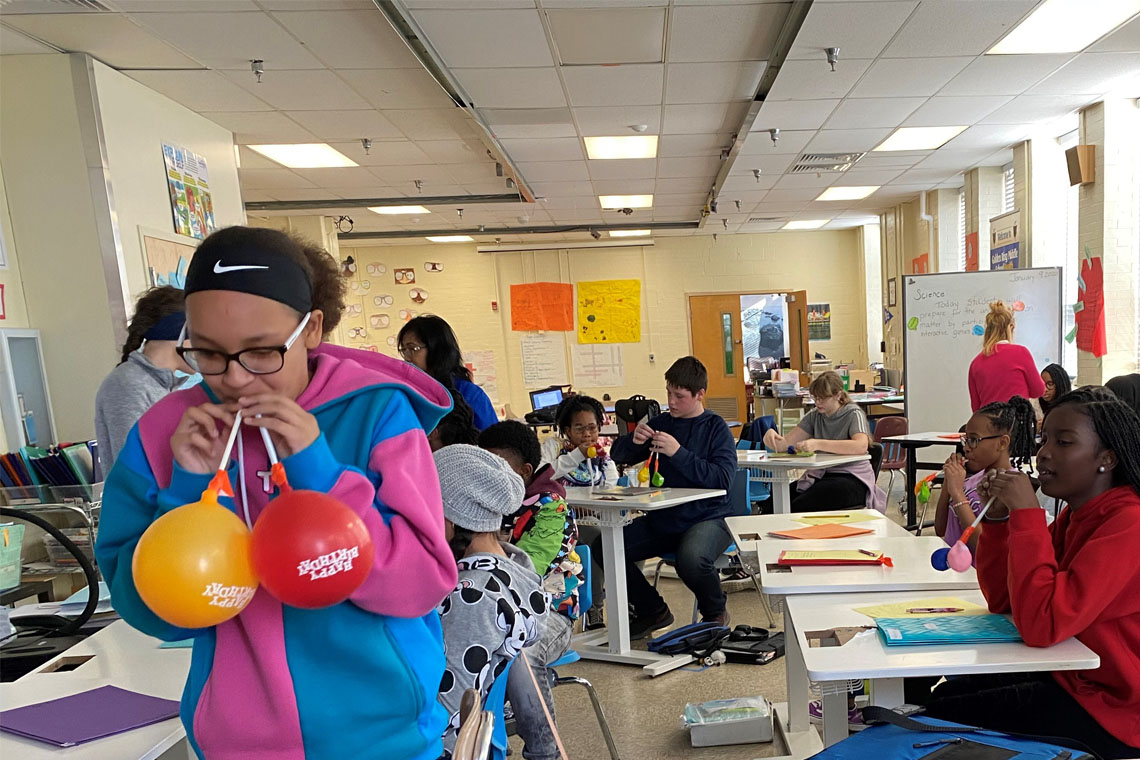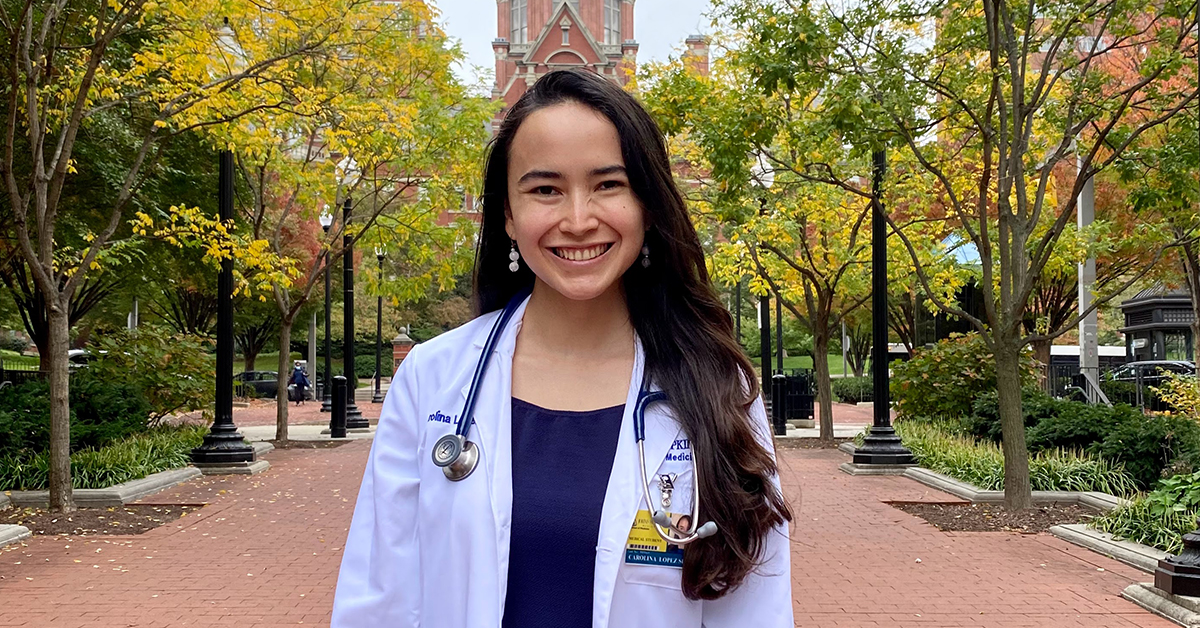Before joining the youth program at Centro SOL (Center for Salud/Health and Opportunities for Latinos) at the Johns Hopkins University School of Medicine, Leo Sanchez says, he did not enjoy working with others because he didn’t feel he could rely on them. After spending a summer with 80 fellow Latino high school students, Sanchez says he has become comfortable working in a group.
“In Centro SOL, I learned to be more open minded, and they taught me about teamwork,” says Sanchez, a junior at Mergenthaler Vocational-Technical High School. “Now I enjoy working with people and learning from my teammates.”
The youth program, which was started in 2014 by Kathleen Page, M.D., an associate professor of medicine at the Johns Hopkins University School of Medicine. It aims to expose bilingual and bicultural teenagers to health care careers at Johns Hopkins Medicine (JHM) and build skills that will help them become medical professionals in their communities.
Grants from private and public institutions fund the program, which also collects donations for one or two of the participants each year.
Centro SOL’s youth program runs after-school mentoring throughout the academic year and is supplemented by a five-week summer program. All of the students are Latinos, immigrants or first-generation Americans. Some students know they want to go to college and some aren’t sure what they’d like after high school.
Students in the program learn how to prepare for college, explore health care careers and participate in community outreach. They also perform group research projects about public health issues such as homelessness, teen pregnancy, substance use disorder, violence and mental health.
“It’s about having opportunities for youth to pursue their dreams,” says Monica Guerrero Vazquez, Centro SOL’s executive director. “We have a bilingual and bicultural staff that engages our families and helps build the next generation of Latino advocates.”
Centro SOL also helps students navigate barriers to higher education.
“There’s an extra layer of challenges because they don’t know what happens with their admission forms if parents don’t have immigration status,” Guerrero Vazquez says. “We bring in college advisers who have experience working with diverse populations. They give them the tools and resources to apply.”
Tomas Franco, Centro SOL’s youth programs coordinator for the 2021-2022 school year, knows firsthand how the organization helps students succeed. When he was looking for summer internships and other opportunities while a high school student in Baltimore, a relative suggested he apply for the program because applicants do not need to have a Social Security number.
Franco was admitted in the summer of 2017 and has been working with Centro SOL ever since.
“I am grateful for the opportunities and skills I have obtained throughout the course of five years,” he says. “Centro SOL has been essential to my educational and personal growth.”
Franco is pursuing a mechanical engineering degree thanks to the Maryland Dream Act. The act requires college students to pursue an associate’s degree first before transferring to a four-year college.
Part of Franco’s job is to recruit mentors with diverse backgrounds who help the students with the college application process and homework, as well as with finding financial aid, learning to budget and searching for employment opportunities. He often invites students from previous years to be mentors.
“Mentors listen to any problems the participants have and try to talk through it with them,” Franco says.
Alicia Arbaje, M.D., M.P.H., Ph.D., director of transitional care research at the Johns Hopkins Center for Transformative Geriatrics Research, is one of the faculty mentors. Arbaje meets with the students about career development and schedules opportunities for them to shadow JHM employees.
“I have gotten to know the students through these sessions,” Arbaje says. “I start by hearing their interests and their challenges. We meet people where they are. We expose the students to a wide variety of health care professions — from finance to patient care to therapists and doctors. Many of them just know they want to help people, and this enables them to see the variety of available professions.”
Arbaje says organizations like Centro SOL help the Latino community foster confidence in organizations like JHM.
“We’re sending a message to the surrounding community that we care about the health and well-being of Latinos,” she says. “It helps engender trust in a community that has been historically minoritized. We need to welcome, include and integrate people who have been marginalized.”
In 2019, 80% of participants were pursuing a college degree and 20% were pursuing trade school. Among the first cohort in 2014, all participants graduated from college and two of the six inaugural participants sought a master’s degree.



